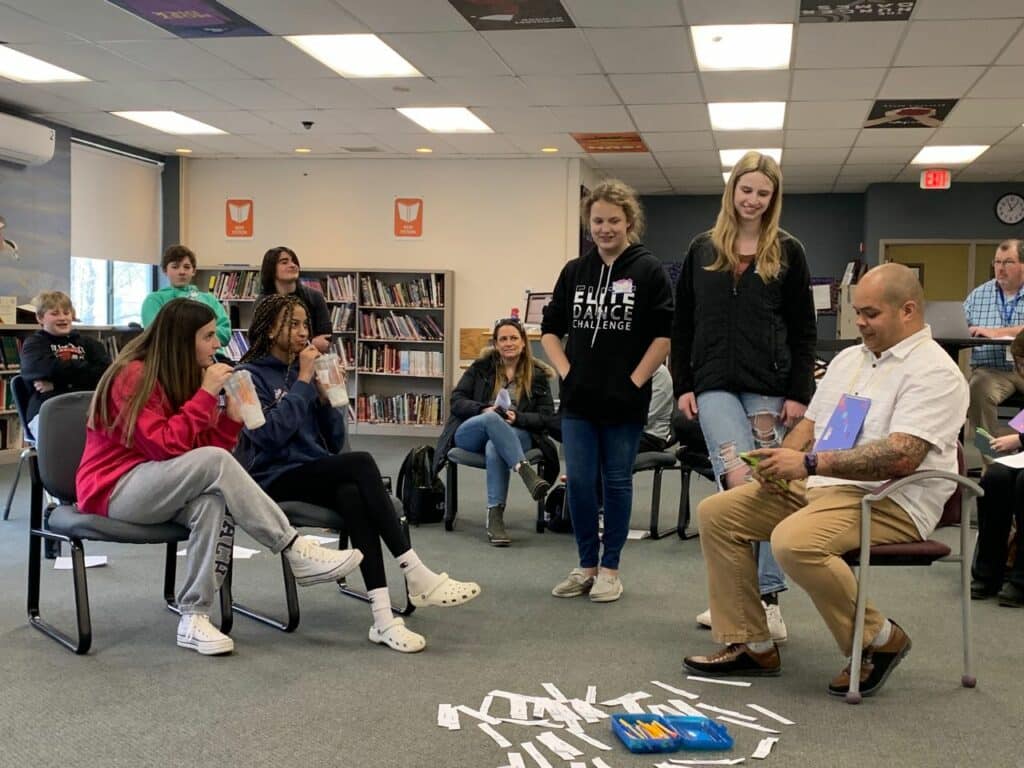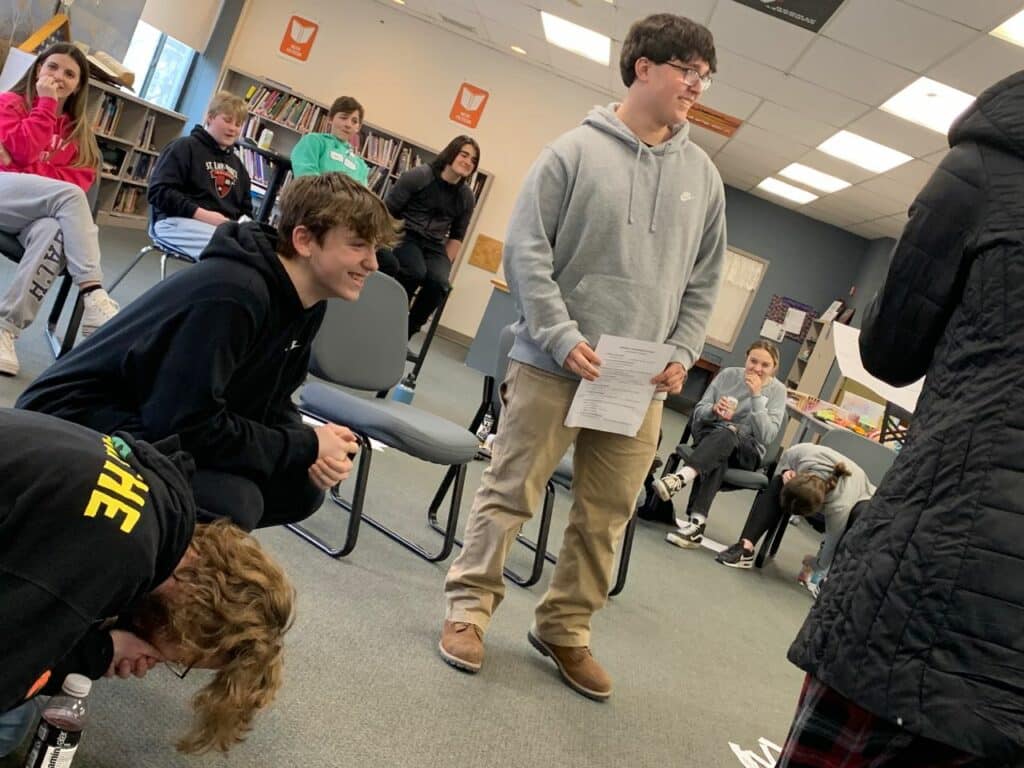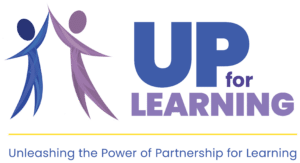
One of the many things I value about working at UP for Learning is that, as a staff, we practice the same things we work on with our partners. We spend the time needed to build relationships, to make sure all voices are heard, to collect and respond to data, and to embrace the cycle of experiment-evaluate-change. As UP’s Operations Director, I work more behind the scenes, but I come from a background of experiential education and community programming. I have learned so much about how UP works as I partner with the Greater Rutland County Supervisory Union’s Restorative Practices team.
This district-wide team brings together youth and adults from the four Greater Rutland County schools. In their second year together, the group has developed a comfort level that allows them to explore important and difficult topics. As part of their most recent retreat, the youth facilitation team, a group of youth who share project leadership, asked to discuss how racism shows up in their schools. Together we developed an agenda that built on lessons from past retreats and used new material to create shared space for respectful dialogue.
In 2023, UP revised its Commitments to Being an Anti-Racist Organization. Within these commitments, UP pledges to use staff time to educate ourselves on the “role of white supremacy culture in organizational systems and work to dismantle these systems and co-construct new, just and equitable systems.” As part of our learning, we all read and completed the activities in This Book is Anti-Racist by Tiffany Jewell. UP Program Director Emily Rossier drew on the sequencing, activities, and vocabulary to structure the GRCSU retreat. First the team reviewed the identity iceberg and affective statements, or “I” statements, from past retreats. Then they played two versions of the game Hedbandz with new vocabulary focused on the elements of the identity iceberg that we can’t see, those below the waterline – gender, racial, neurodiversity, socioeconomic. With shared respectful language, the group could talk more about power and privilege. Breaking into four smaller circles, they used established agreements and circle protocols to discuss what is happening in their schools.
UP for Learning has been a leader in the RISE-VT project and has created free resources for all schools (found here) including a:
- Free learning module on restorative practices in schools
- Resources library
- List of Vermont practitioners
- Videos of what RP looks like in VT schools
While my role in the RISE-VT project was more about the budgeting, I am gratified to see the elements at work in the GRCSU schools. Two of the most powerful lessons/reminders from the day for me:
- There is space for fun in very difficult conversations. Because of the relationships built over time, these middle and high school students made this fun. The agendas included lots of movement, mingling, acting (the two photos show role playing), and dancing as community building. These youth had learned when to ask for a break, how to appropriately inject humor and silliness, and why the dialogue was important for them and their school community.
- Adults can model partnership and ways to ask for help. Everything about this day was shared between the youth and adults and transparent and flexible. We relied on each other, on our partners at the Rutland County Restorative Justice Center, and on experts in the fields, such as Tiffany Jewell, to show the myriad available resources.
And, more generally, working at UP for Learning reminds me daily to be curious, committed, value-focused, and good humored and excited about all there is to learn.


